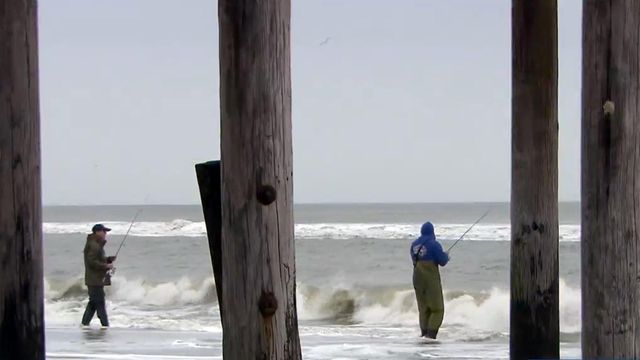Anglers accuse NC of bait-and-switch with fishing license revenue
Every time a coastal fishing license is sold in North Carolina, a portion of the money is supposed to help improve fishing on the coast, but some recreational anglers say the state is reeling in some of that revenue for other purposes.
Posted — UpdatedWhen the fishing license law was passed a decade ago, it clearly stated the state Division of Marine Fisheries "may not authorize the disbursement of endowment investment income to establish positions without specific authorization from the General Assembly."
"There's been clear intent, I think, to go in and raid that fund," recreational fisherman Scott Griffin said recently.
Fishing licenses cost anywhere from $5 for 10-day privileges up to $250 for a lifetime pass, and they generate more than $4 million in revenue a year fro the Marine Resources Fund.
"This fund should absolutely never be encumbered by general operating expenses of that division at all, end of discussion," Griffin said. "It should go to habitat. It should go to fish stocks, hatcheries, anything that's going to get our fishery up to par."
DMF Director Braxton Davis said the license revenue is being spent properly.
"I’m not aware of any expenditures of Coastal Recreational Fishing License revenues for anything outside of the stated purposes of the fund as outlined in state law," Davis said in a statement.
The agency obtained legislative approval for staff positions designed to oversee projects funded through license revenue, officials said. Some other DMF positions paid for with license funds had lost other funding or were in danger of getting cut in the state budget, and those moves didn't require approval, according to officials.
DMF has handed out about $18 million in license revenue in grants for various projects on the coast, but more than $4 million of that came back to the agency, such as $285,000 for publications. Griffin said the state should have provided the agency with funds to cover its operations.
"DMF shouldn't write grants to themselves to manage our fisheries. I mean, it's the craziest thing ever," he said.
Rep. Larry Yarborough, R-Person, has called on the State Auditor's Office to look into how the license money is spent.
"The more I'm finding out, there are all kinds of problems with the way our marine fisheries are being managed," said Yarborough, an avid angler who usually goes out of state because of his reservations about North Carolina coastal fishing.
"After a while, it became clear that I could spend a weekend down on the Gulf Coast and catch more fish in one weekend than I could in a whole summer down on the Core Sound," he said.
Davis said state auditors reviewed the fishing license fund this year and turned up no negative findings.
"Nothing that I've seen or anyone shows that that money is missing. It's just gone in the wrong buckets," Griffin said, saying the license money should be focused on things to increase coastal fish stocks, not on administrative costs.
"If we put the money in the bottom of the ocean and we harvest it and grow it up and let it bloom, every user group wins," he said.
Concern goes beyond the fishing license revenue.
State lawmakers this year moved control of the money to DMF from a committee of the state Marine Resources Committee to bring North Carolina into compliance with federal law and satisfy FWS' concerns.
"We've got 1.2 million folks paying in $20 (million) to $30 million ... that can go to our competing states when we're found not compliant," Griffin said.
• Credits
Copyright 2024 by Capitol Broadcasting Company. All rights reserved. This material may not be published, broadcast, rewritten or redistributed.





